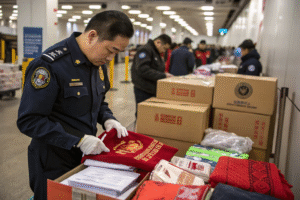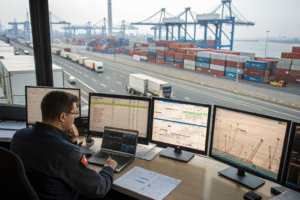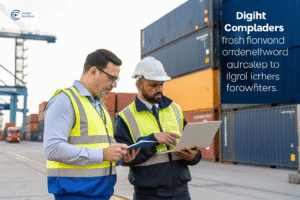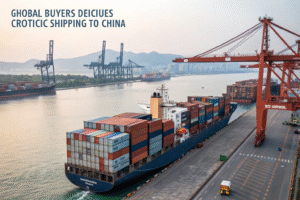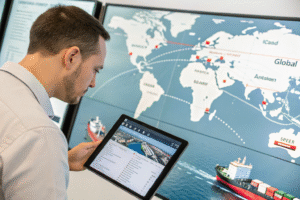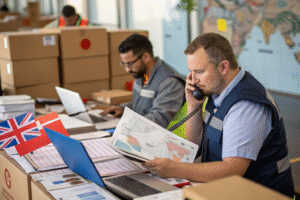Many importers feel nervous about handing over valuable cargo to a partner they’ve never met. I’ve heard the same worry again and again: “How do I know this freight forwarder is legit?”
A reliable Chinese freight forwarder is transparent, communicative, experienced, and certified. Choosing the right one protects your cargo, your budget, and your business.
With thousands of forwarders in China, not all are created equal. I’ll walk you through what to look for, what to avoid, and how to verify you're working with a real logistics partner — not a risky middleman.
Key traits of a trustworthy freight forwarder
You can tell a lot about a freight company by how they communicate, what documents they provide, and how quickly they respond.
A reliable Chinese freight forwarder shows transparency, gives detailed quotes, offers full logistics solutions, and follows through with accountability.
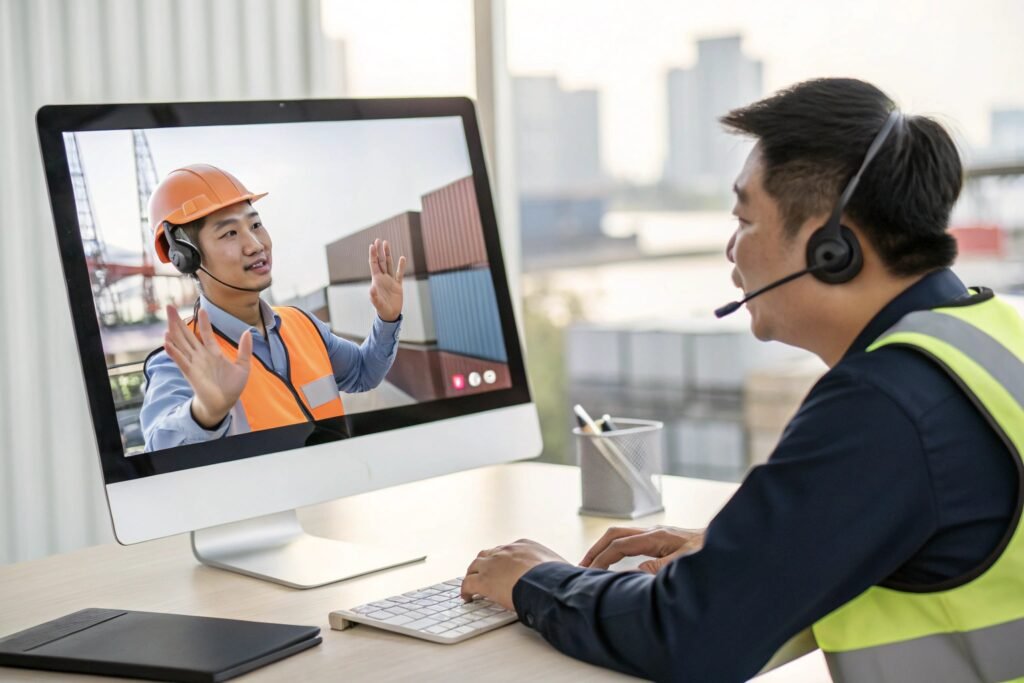
What are the top signs of a professional freight partner?
Look for these qualities:
| Trait | Why It Matters |
|---|---|
| Transparent Pricing | Avoids surprise fees and hidden charges |
| Fast, Clear Communication | Quick responses reduce delays |
| Service Range | Can handle FCL, LCL, DDP, customs, delivery |
| Shipment Tracking | Gives live updates, not excuses |
| Professional Quotes | Includes Incoterms, HS codes, and port fees |
| Customer References | Proves track record and reliability |
| Multilingual Support | Crucial for non-Chinese-speaking importers |
At GeeseCargo, we’ve developed a quoting process that shows each step, from factory pickup to final warehouse delivery. Clients get peace of mind because they know exactly what’s included.
Does company size matter?
Not always. Big companies can be slow and hard to reach. Small ones might not have carrier relationships. What matters is consistency and follow-through.
We’ve worked with 20-year-old family firms that run circles around large logistics brands. The key is this: Do they deliver what they promise — every time?
Questions to ask your Chinese freight partner
Don’t just sign a deal after a few emails. Ask questions. The right ones will reveal how the forwarder handles cargo, solves problems, and communicates under pressure.
You should ask about experience, licenses, liability coverage, customs process, and communication channels. A trustworthy forwarder will answer all questions clearly and confidently.
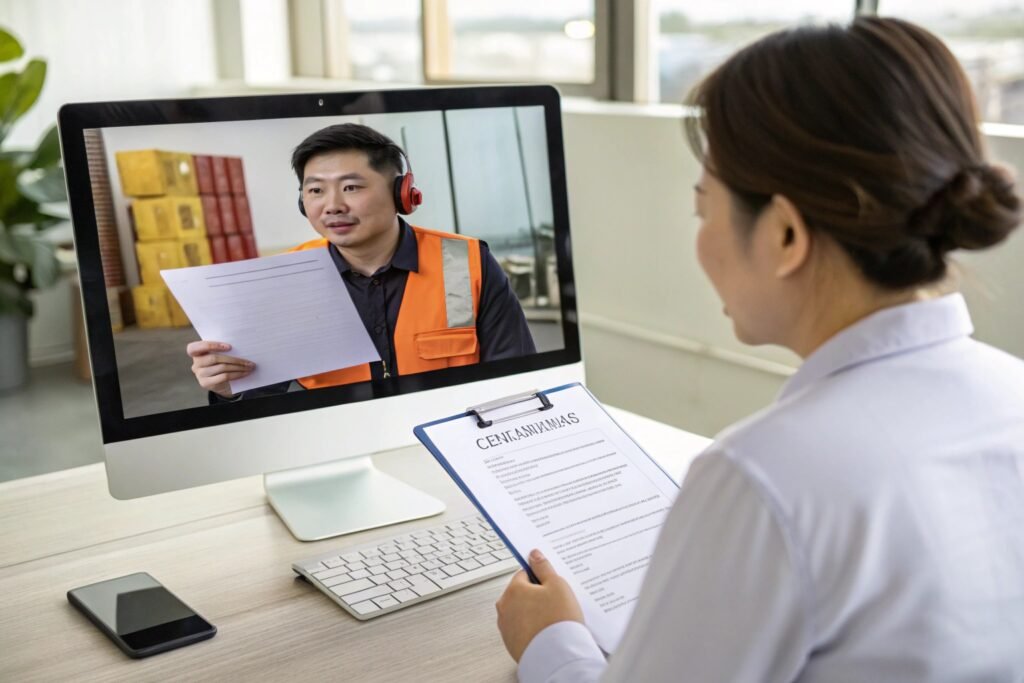
What should you ask before booking a shipment?
Here’s a list of key questions:
| Question | What It Reveals |
|---|---|
| How many years have you handled U.S. or EU shipments? | Route experience |
| Can you provide a full DDP quote with all charges? | Transparency |
| Do you have WCA, NVOCC, or FMC registration? | Legitimacy |
| Who is my contact person during shipping? | Communication clarity |
| Can I talk to one of your existing U.S. clients? | References |
| Do you offer cargo insurance and document support? | Full-service capabilities |
| What happens if customs delays occur? | Crisis handling strategy |
I often remind new clients: Don’t just ask about cost — ask how they handle problems. That’s where the best forwarders stand out.
Should you do a trial shipment first?
Yes. A small trial shipment helps test:
- Communication style
- Accuracy of documentation
- Tracking tools
- Final delivery experience
At GeeseCargo, we offer discounted “first-time” trial shipments for new clients. It’s a win-win: you get to test us, and we get to prove our value.
Red flags when selecting a freight forwarder
Choosing the wrong forwarder can cost you delays, damaged cargo, or even complete shipment loss. Watch for warning signs — they’re easier to spot than you think.
Red flags include vague quotes, lack of business licenses, poor communication, no online presence, and pressure tactics. Trust your gut — and the facts.
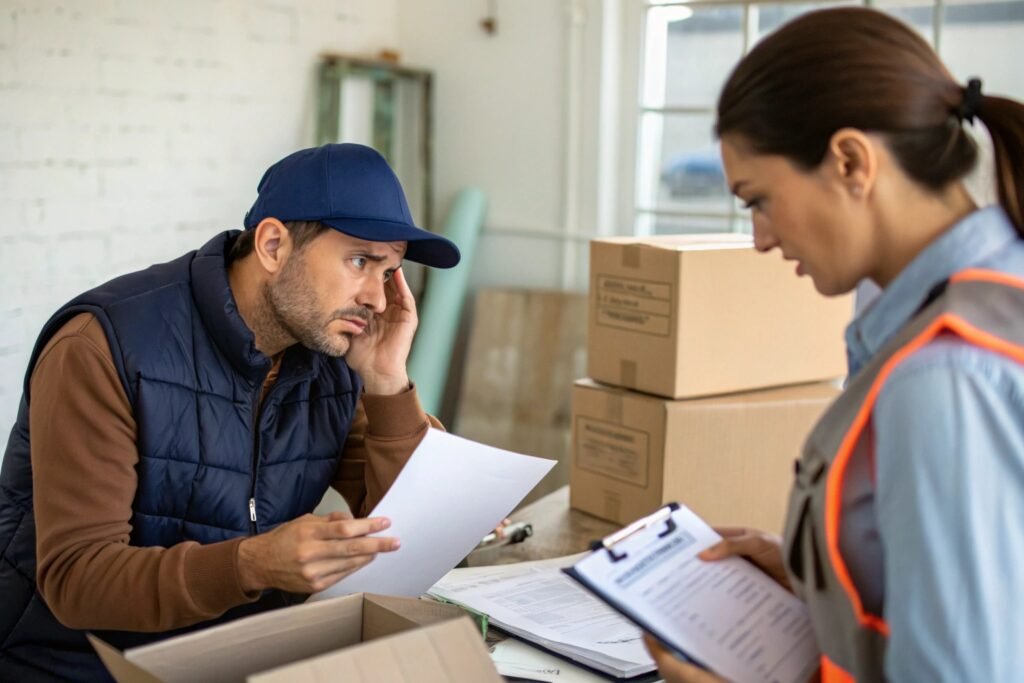
What are signs you should walk away?
Here are common danger signals:
| Red Flag | Explanation |
|---|---|
| “Too good to be true” rates | Often bait-and-switch pricing |
| No business website or license info | High risk of fraud |
| Delayed or no reply after 24–48 hrs | Poor service under pressure |
| Only communicates via WhatsApp | Avoids traceable channels |
| Refuses to offer breakdown quotes | Hiding additional costs |
| No company address or warehouse photos | Likely a broker or fake operator |
One buyer I know lost $15,000 on a fake DDP shipment because the “forwarder” vanished after pickup. No license, no real website, and no office. Just a Gmail address.
Are trading companies pretending to be forwarders?
Yes, and this is common in China. These are not real logistics firms — they’re middlemen. They subcontract everything and often can’t handle delays or offer support.
You want a direct forwarder with real port access, fleet contracts, and customs knowledge. That’s why we always show new clients our warehouse photos, export licenses, and previous Bill of Lading samples.
Verified ways to check freight forwarder credentials
If you want to be sure you’re dealing with a real logistics partner, do your homework. Don’t rely on fancy PDF presentations alone.
You can verify a Chinese freight forwarder by checking licenses, industry memberships, company registrations, client reviews, and online business directories.

How do you confirm a forwarder’s legitimacy?
Use these methods:
| Method | How to Check |
|---|---|
| Business License | Ask for scanned copy in Chinese and English |
| WCA Membership | Check at wcaworld.com |
| NVOCC Certification | Verify with China’s Ministry of Transport |
| FMC Registration (U.S.) | Look up on fmc.gov |
| Trade References | Request 2–3 U.S.-based client contacts |
| Chinese Credit Platform | Use qcc.com to check local company records |
We provide all of the above at GeeseCargo — with no delay. That’s how we’ve built trust with over 100 U.S. importers.
Are there English-language platforms to find freight forwarders?
Yes. While Alibaba and Made-in-China list many providers, better sources include:
- Freightos
- Flexport directory
- LinkedIn (look for logistics groups)
- WCA Forwarder Database
But always check reviews outside of these platforms too — especially for real shipping outcomes, not just sales promises.
Conclusion
Choosing a reliable freight forwarder in China is one of the most important decisions in your supply chain. Ask the right questions, look for the right traits, avoid red flags, and verify credentials. A good partner like GeeseCargo can save you money, time, and a lot of stress.

